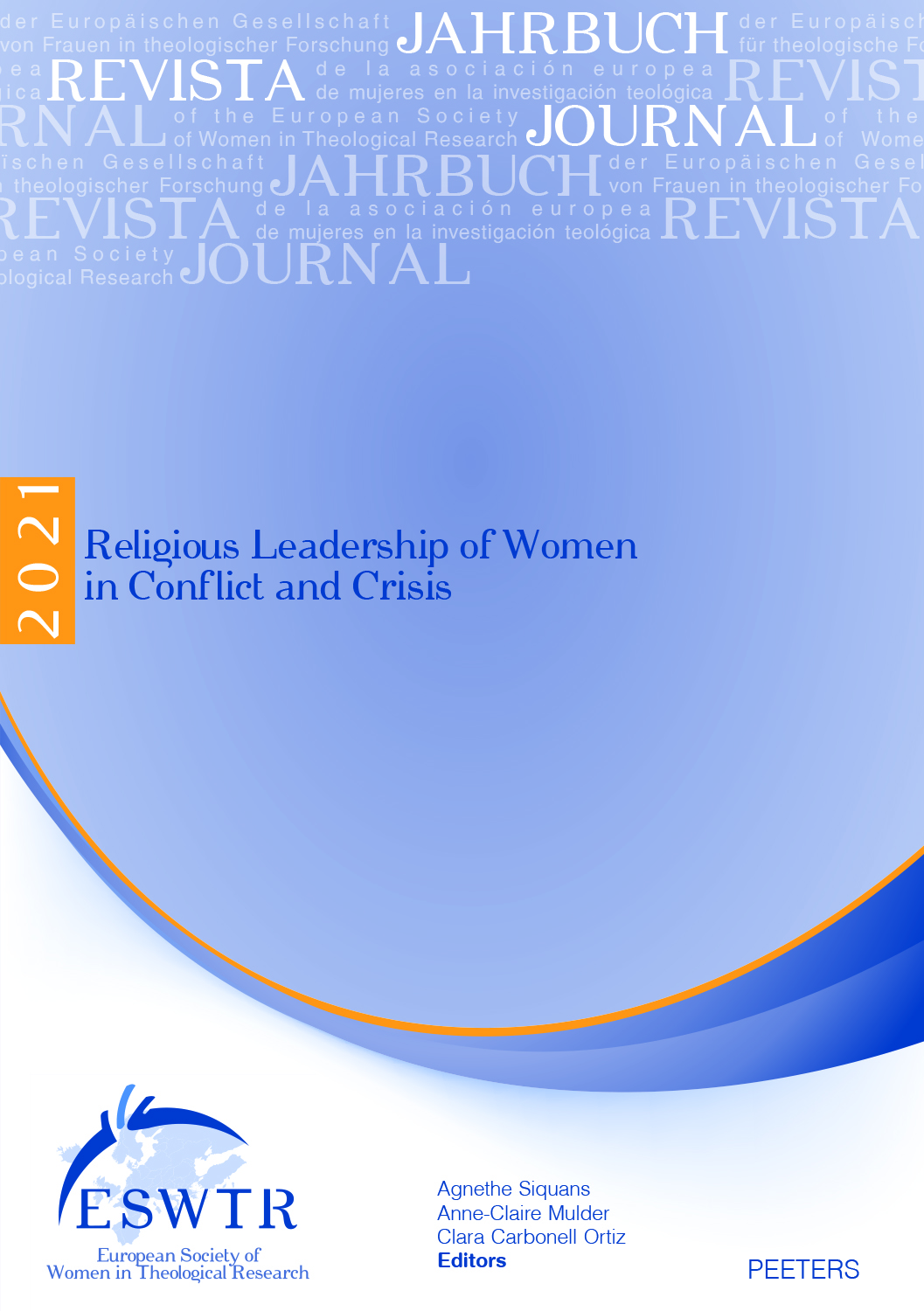 previous article in this issue previous article in this issue | next article in this issue  |

Preview first page |
Document Details : Title: Strukturelle Hintergründe des sexuellen Missbrauchs in katholischen Institutionen Subtitle: Zur Rolle von innerkirchlichen Machtverhältnissen und religiösen Verstrickungen von Betroffenen Author(s): FERNAU, Sandra Journal: Journal of the European Society of Women in Theological Research Volume: 27 Date: 2019 Pages: 229-261 DOI: 10.2143/ESWTR.27.0.3286563 Abstract : Der vorliegende Artikel basiert auf einer qualitativen Interviewstudie mit erwachsenen Frauen und Männern, die im Kindes- und Jugendalter von katholischen Geistlichen sexuell missbraucht wurden. Im Zentrum der Betrachtung stehen katholische Macht- und Glaubensstrukturen sowie religiöse Verstrickungen der Interviewten, die einerseits mit Blick auf deren Auswirkung auf die Bewältigung der Viktimisierungserfahrungen, andererseits hinsichtlich der Frage nach Missbrauch begünstigenden Faktoren innerhalb katholischer Institutionen analysiert werden. Dabei wird zum einen herausgearbeitet, dass Verstrickungen im katholischen Glauben eine gelingende Verarbeitung von Viktimisierungserfahrungen tendenziell erschweren und zu verzerrten Wahrnehmungsmustern bei Opfern beitragen. Zum anderen beleuchtet der Artikel strukturelle Hintergründe der Missbrauchsproblematik und macht anhand des empirischen Materials deutlich, dass spezifische Situationskontexte sowie Macht- und Autoritätsverhältnisse in katholischen Institutionen innerkirchlichem sexuellen Missbrauch Vorschub leisten. Es werden institutionelle und glaubensbezogene Strukturen identifiziert, die dazu beitragen, missbrauchsbegünstigende Sozialbeziehungen zwischen Geistlichen und Kindern oder Jugendlichen zu etablieren, indem sie Fügsamkeitsbereitschaften von (potenziellen) Opfern steigern und zugleich Chancen zum Machtmissbrauch seitens der klerikalen Amtsinhaber erhöhen. This article presents the findings of a qualitative interview-based study of adult women and men who were sexually abused by Catholic clerics as children or adolescents. The focus is on Catholic power and belief structures as well as on the interviewees’ religious entanglements, which are analysed both with regard to their effects on coping with the experienced victimisation on the one hand, and with regard to contributing factors to sexual abuse within Catholic institutions on the other. Firstly, it is demonstrated that religious entanglements tend to impede coping processes and contribute to distorted patterns of victims’ perceptions. Secondly, the empirical material indicates that sexual abuse by clerics is abetted by specific situational contexts as well as power and authority structures within Catholic institutions. The article identifies institutional and belief structures promoting the establishment of social relations between clerics and children or adolescents, which abet sexual abuse by increasing (potential) victims’ disposition to submit to authority on the one hand, and opportunities to the abuse of power by clerics on the other. Este artículo presenta los resultados de un estudio cualitativo basado en entrevistas de mujeres y hombres adultos que fueron abusados sexualmente por clérigos católicos cuando eran niños, niñas o adolescentes. Se pone el foco en el poder católico y las estructuras de creencia, así como en los entramados religiosos de los entrevistados. Estos últimos son analizados tanto con respecto a sus efectos en el manejo de la victimización experimentada por un lado, y con respecto a los factores contribuyentes al abuso sexual dentro de las instituciones católicas, por otro. En primer lugar, basándose en diferentes estrategias de afrontamiento religioso, se demuestra que los entramados religiosos hacen que sea más difícil lidiar con el abuso, y contribuyen a patrones distorsionados de percepciones de las víctimas. En segundo lugar, el artículo revela las causas estructurales del abuso en los entornos de la iglesia. El material empírico indica que el abuso sexual por parte de los clérigos también es instigado por contextos situacionales específicos como estructuras de poder y autoridad dentro de las instituciones católicas. De este modo, identifico estructuras de creencia e institucionales que promueven el establecimiento de relaciones sociales entre clérigos y niños o adolescentes, que incitan al abuso sexual al aumentar víctimas (potenciales); disposición de las víctimas a obedecer, por un lado, y proporción de oportunidades para abusar del poder por los clérigos, por otro. |
 |


